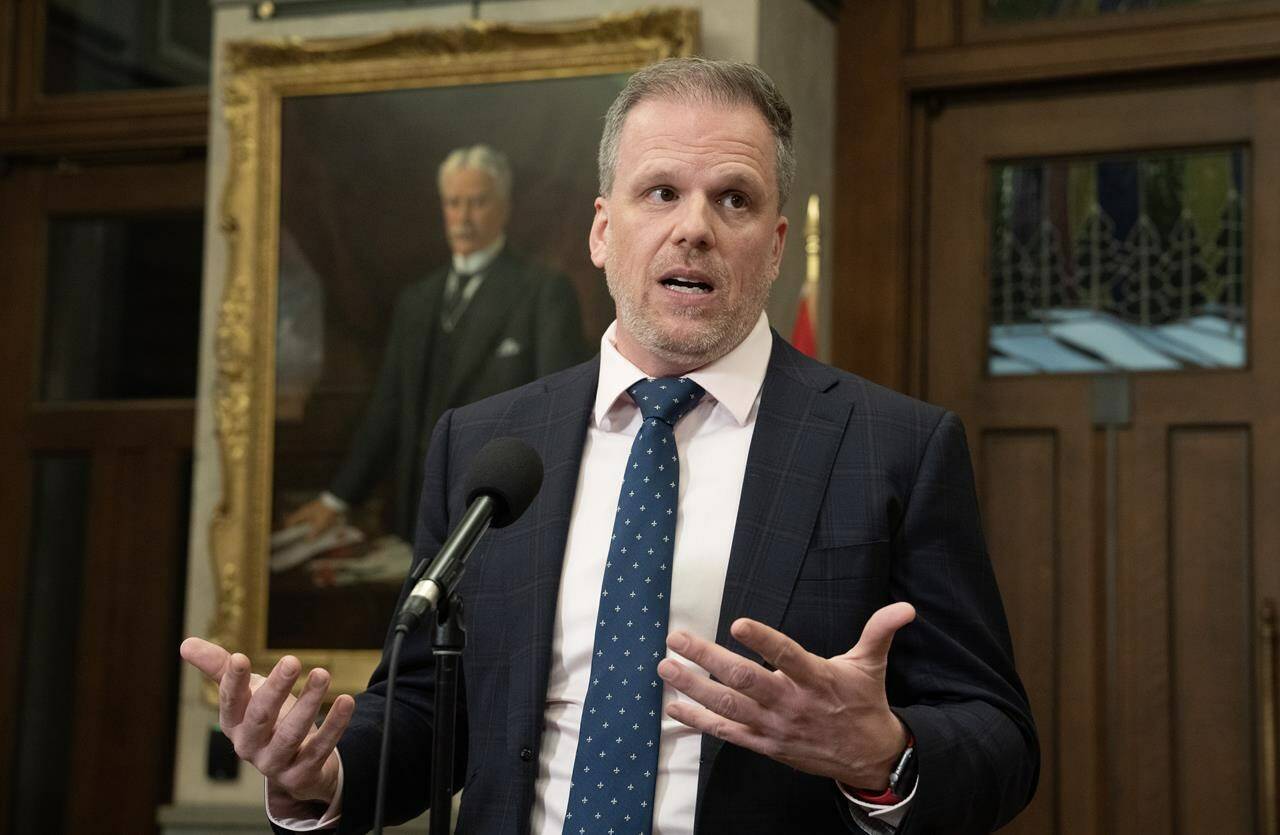Health Minister Mark Holland is expected to table a long-awaited bill Thursday meant to pave the way for national pharmacare and preserve a deal that secures NDP support for the government in the House of Commons.
Ottawa is also expected to launch a program to cover birth control and diabetes drugs and supplies for anyone with a health card, as a condition of a bargain struck with the New Democrats.
Pharmacare is a central pillar of the political pact between the two parties, which has the NDP helping the Liberals stave off an election in exchange for progress on a list of shared priorities.
Its future seemed uncertain earlier this month amid a months-long stalemate over the wording of the legislation and the number of drugs they planned to launch with.
The NDP announced they clinched the negotiations late last week, in the lead-up to a negotiated March 1 deadline to table a bill.
Health critic Don Davies, who led the negotiations for the New Democrats, said the final pieces were put in place over the weekend.
“The NDP has been simply unceasing in our insistence that we build a system that constructs a single-payer formulary and a formula for pharmacare, and I can tell you that the legislation does that,” he said.
The reticence on the Liberals’ part largely came down to cost.
A full fledged pharmacare program would cost the government nearly $40 billion a year by the time it is fully up and running, the parliamentary budget officer estimates.
In December, parties agreed to push back the original timeline, which would’ve seen legislation fully passed by the end of last year.
NDP Leader Jagmeet Singh threatened to pull out of the parties’ political deal if the new March 1 deadline wasn’t met with legislation that earned his approval.
But he and his party have been open about their desire to keep the deal alive and see a pharmacare bill debated in the House of Commons.
The bill is expected to lay out the principles that would underpin a potential federal pharmacare plan in the future.
Because of the delay in tabling the proposed law, the Liberals have agreed to launch coverage of contraceptives, insulin and diabetic supplies such as devices for glucose monitoring, said Singh.
Alberta and Quebec have already said they want to opt out of the program and would rather put the money toward their existing drug programs.
“We were not consulted about the federal government’s plan and, although information available to us is limited, we have concerns about the proposed limited scope,” Alberta Health Minister Adriana LaGrange said earlier this week.
LaGrange said Alberta intends to opt out of the program, but it wants to receive its per-capita share.
Davies reproached Alberta and Quebec’s governments for dismissing the program.
“I think it’s absurd that anybody would reject out of hand a proposal that they don’t understand or haven’t seen yet,” he said Wednesday.
If provinces were to opt out of the national plan, it could undermine some of the potential savings Canada would expect to see as a result of bulk drug purchasing, Davies said.
“New Zealand estimates they save 40 per cent on drug costs by having a single bulk-buying system. So, working toward having a much more effective, robust, national, comprehensive bulk-buying system would save us billions of dollars, it’s been estimated,” Davies said.
READ ALSO: B.C. health minister Adrian Dix welcomes national pharmacare program
READ ALSO: Freeland pledges pharmacare deal won’t jeopardize federal finances

